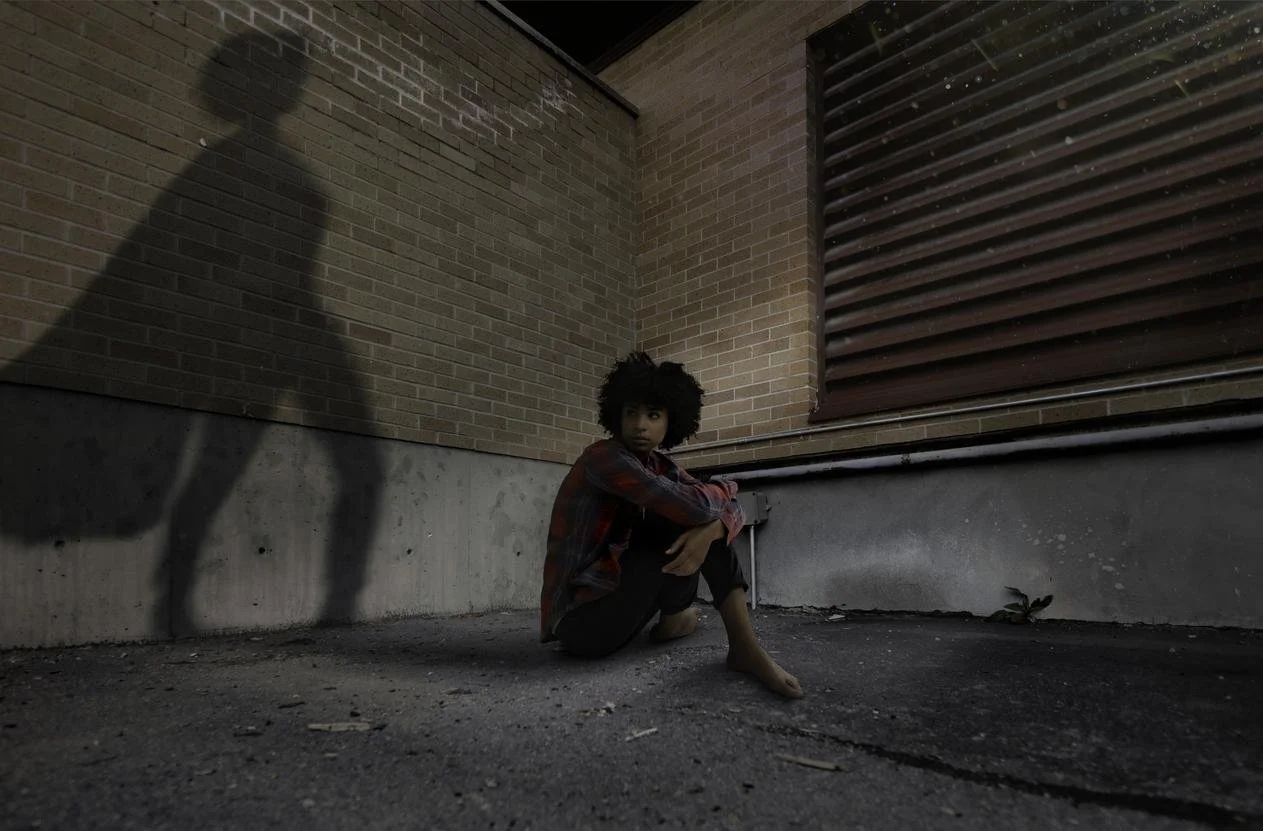Choosing Yourself Is Harder Than Anyone Tells You
Choosing yourself means facing the lonely nights, hard truths, and quiet victories that come with honoring your worth and protecting your peace. We discuss it here!
Choosing Yourself Is Harder Than Anyone Tells You
By: Jamila Gomez
People talk about “choosing yourself” like it’s a clean, glamorous act of self-love. Like you light a candle, make a vision board, and boom—you’re healed, whole, and standing in your power. The truth is, it’s nothing like that. Choosing yourself is messy. It’s lonely. It’s questioning whether you made the right choice while also knowing deep down you did.
I had a hard day recently—the kind of day where you walk through the door and feel the weight of the world on your shoulders. My first thought was how nice it would be to have somebody there. Not to fix anything, not to solve the problem, just to be present. To sit next to me, maybe bring me a cup of tea, or say, “Yeah, today was rough.” That longing was real.
But then I remembered what it was like when I did have somebody. The truth is, those hard days didn’t magically get better just because I wasn’t alone. Sometimes, I still felt lonely in the same room with them. Sometimes, their way of being “there” came with extra weight—judgment, distraction, or even the silent reminder that my needs weren’t really understood. And it hit me: being partnered doesn’t always mean being supported.
That’s the part people skip over. Choosing yourself often means saying no to situations that look good from the outside but drain you on the inside. It’s walking away from what’s familiar because it costs too much of your peace. And when you do, the empty space it leaves behind can feel unbearable at first.
You have to learn how to hold yourself in that space. To sit with your own feelings instead of numbing them. To be your own witness on the hard days. And that’s a skill nobody teaches you—because most people don’t want to sit with themselves long enough to learn it.
Choosing yourself isn’t about isolation. It’s about knowing you’d rather stand alone than stay somewhere that requires you to shrink. It’s about building a life where you are not a side character, where your needs matter as much as anyone else’s. That doesn’t mean the longing disappears—it means you don’t let longing be the only reason you settle.
So yes, it’s hard. It’s uncomfortable. But over time, you notice the small victories: how you speak to yourself more gently, how you trust your own judgment more, how your peace feels less negotiable. And then one day, even on a hard day, you realize—you’d still choose yourself.
YOU MAY ALSO BE INTERESTED IN:
SHARE TO SOCIAL MEDIA
Designing a Trip That Actually Feels Good to You
Learn how to plan travel that truly nourishes your spirit, prioritizes rest, and aligns with your personal rhythm instead of performance-based pressure. We discuss it here!
Photo Credit: FG Trade via iStockPhoto.com
By: Jamila Gomez
It’s not just in your head. When Black women say something feels off, we’re often met with blank stares, rushed explanations, or worse—dismissal. Whether it’s pain being minimized, symptoms being overlooked, or valid concerns being downplayed, the truth is this: healthcare was not built with us in mind. And you can feel that in the way you’re spoken to, treated, or ignored altogether.
You shouldn’t have to prepare for a fight every time you book a checkup, but in many cases, that’s what it becomes. A tug-of-war between what you know about your body and what someone else assumes based on their bias or lack of training. So you learn to prepare—not because you want to, but because you have to.
Start by treating your body like a case file. If something doesn’t feel right, log it. Don’t wait until the day before your appointment to remember when it started. Track your symptoms in real time—note the frequency, what makes it worse, what helps, and how it interferes with your daily life. This isn’t about proving you’re in pain. It’s about refusing to let anyone act like it’s unclear.
Walk into that office with questions—real ones. And expect real answers. If they hand you a vague explanation, ask for specifics. If they dismiss your concern, ask what diagnostic process they’re using. You’re not being difficult—you’re being informed. There’s a difference.
And let’s be honest: you might need a witness. Having someone with you—a friend, partner, cousin—can change the entire tone of the visit. They don’t even have to speak. Just being there can interrupt that tendency providers have to steamroll, assume, or rush through. If you can’t bring anyone, prepare a list of questions and take notes. If they push back on that, take that as a sign.
If you feel ignored, move on. Ask for a referral, a second opinion, or a complete switch. Don’t explain your discomfort. You don’t owe loyalty to a system that hasn’t earned your trust. Keep records. Ask for your charts. You have rights—use them.
And above all, trust your own expertise. You’ve been living in your body long enough to know when something’s off. Listen to that. Act on it. Say it without softening your tone.
You don’t need to convince anyone to care about your health. But you do need to make sure they can’t ignore it.
YOU MAY ALSO BE INTERESTED IN:
SHARE TO SOCIAL MEDIA
Getting Heard in Healthcare: A Survival Guide for Black Women
Black women are often dismissed in healthcare settings, but learning to track symptoms, ask informed questions, and advocate for your body can help protect your health and ensure you’re taken seriously. We discuss it here!
Photo Credit: nortonrsx via iStockPhoto.com
By: Jamila Gomez
It’s not just in your head. When Black women say something feels off, we’re often met with blank stares, rushed explanations, or worse—dismissal. Whether it’s pain being minimized, symptoms being overlooked, or valid concerns being downplayed, the truth is this: healthcare was not built with us in mind. And you can feel that in the way you’re spoken to, treated, or ignored altogether.
You shouldn’t have to prepare for a fight every time you book a checkup, but in many cases, that’s what it becomes. A tug-of-war between what you know about your body and what someone else assumes based on their bias or lack of training. So you learn to prepare—not because you want to, but because you have to.
Start by treating your body like a case file. If something doesn’t feel right, log it. Don’t wait until the day before your appointment to remember when it started. Track your symptoms in real time—note the frequency, what makes it worse, what helps, and how it interferes with your daily life. This isn’t about proving you’re in pain. It’s about refusing to let anyone act like it’s unclear.
Walk into that office with questions—real ones. And expect real answers. If they hand you a vague explanation, ask for specifics. If they dismiss your concern, ask what diagnostic process they’re using. You’re not being difficult—you’re being informed. There’s a difference.
And let’s be honest: you might need a witness. Having someone with you—a friend, partner, cousin—can change the entire tone of the visit. They don’t even have to speak. Just being there can interrupt that tendency providers have to steamroll, assume, or rush through. If you can’t bring anyone, prepare a list of questions and take notes. If they push back on that, take that as a sign.
If you feel ignored, move on. Ask for a referral, a second opinion, or a complete switch. Don’t explain your discomfort. You don’t owe loyalty to a system that hasn’t earned your trust. Keep records. Ask for your charts. You have rights—use them.
And above all, trust your own expertise. You’ve been living in your body long enough to know when something’s off. Listen to that. Act on it. Say it without softening your tone.
You don’t need to convince anyone to care about your health. But you do need to make sure they can’t ignore it.
YOU MAY ALSO BE INTERESTED IN:
SHARE TO SOCIAL MEDIA
Sisterhood in Self-Care: Building a Supportive Community for Black Women
Building a supportive self-care community among Black women fosters empowerment, healing, and mutual support through shared experiences and intentional connection. We discuss it here!
Photo Credit: Lorado via iStockPhoto.com
By: Jamila Gomez
Building a supportive self-care community among Black women can be a transformative journey of mutual support, empowerment, and shared healing. In a world where daily stressors and systemic challenges often weigh heavily, connecting with other Black women who understand these experiences can provide a powerful sense of belonging and validation. Here are a few guiding principles to consider when fostering such a community.
1. Start with Intention
Begin by defining what you hope to create. Are you looking for a group focused on mental wellness, physical well-being, spiritual growth, or a combination of these elements? Establishing a clear vision helps set the tone, shape group activities, and attract those who will benefit the most from this space.
2. Choose the Right Platforms
It can be helpful to utilize both online and offline spaces to build your community. Social media platforms, private group chats, and video conference tools enable members to stay connected across different locations and time zones. Meanwhile, in-person gatherings—like monthly coffee meetups or wellness circles—foster deeper, face-to-face connections. Striking a balance between virtual and physical interactions ensures that the community remains accessible and engaging.
3. Create a Safe Space
A supportive self-care community thrives on trust and authenticity. Lay down ground rules that emphasize respect, confidentiality, and kindness. Encourage members to speak openly about their challenges, anxieties, and triumphs. Recognizing that many Black women face microaggressions, discrimination, and unique mental health stressors, a culture of understanding and empathy is essential.
4. Encourage Collective Learning
Sharing knowledge and resources is a key aspect of community building. Plan skill-sharing sessions on topics ranging from mindfulness practices to financial wellness. Invite experts—such as therapists, dietitians, or fitness instructors—who understand the specific experiences of Black women. This ensures that discussions are tailored and culturally relevant, enriching the group’s collective wisdom.
5. Celebrate Individual and Collective Wins
Acknowledging achievements, whether big or small, fosters motivation and solidarity. This can be as simple as hosting a virtual “praise break” session where members highlight personal wins from the week, or organizing an in-person gathering to celebrate milestones like job promotions or new business ventures. Recognizing success helps reinforce the sense of unity and support within the group.
6. Practice Sustained Self-Care
Encourage members to develop personalized self-care routines that address their unique emotional, physical, and spiritual needs. Provide regular check-ins to keep each other accountable. Recommendations for journaling, guided meditation, yoga classes, or nature walks can enhance overall well-being. By keeping self-care at the center of everything you do, members can better support themselves and each other.
7. Prioritize Growth and Adaptation
As life circumstances change, your community’s needs will evolve too. Routinely assess what is working and what could be improved. Staying flexible ensures the group remains relevant, uplifting, and supportive as members grow and flourish together.
Through intentional organization, authenticity, and shared commitment, Black women can cultivate powerful self-care networks that nurture strength, healing, and collective uplift.
YOU MAY ALSO BE INTERESTED IN:
SHARE TO SOCIAL MEDIA
Wealth-Building Strategies for Black Women: Empowering Financial Growth
Empower Black women to achieve financial independence with tailored wealth-building strategies, from financial planning and entrepreneurship to investing and overcoming systemic barriers. We discuss it here!
Photo Credit: Jacob Wackerhausen via iStockPhoto.com
By: Jamila Gomez
Building wealth is a vital step toward financial freedom and generational prosperity. For Black women, navigating systemic inequities while striving for financial security requires tailored strategies that address unique challenges and harness opportunities. Here are practical wealth-building strategies designed to empower Black women to achieve financial independence.
1. Develop a Financial Roadmap
Start by creating a clear financial plan. Assess your current financial situation, set short- and long-term goals, and outline actionable steps. Tools like budgeting apps, financial planners, or mentorship programs can provide guidance. Prioritize eliminating high-interest debt and building an emergency fund.
2. Invest in Financial Education
Understanding the fundamentals of personal finance is crucial. Attend workshops, read books, and explore online resources to learn about budgeting, investing, credit management, and retirement planning. Financial literacy lays the groundwork for informed decisions and long-term stability.
3. Embrace Entrepreneurship
Black women are among the fastest-growing groups of entrepreneurs. Starting a business not only generates income but also builds equity. Leverage community resources, business incubators, and small-business loans targeted toward minority-owned enterprises to launch or expand ventures.
4. Maximize Career Potential
In professional settings, advocate for fair pay and seek opportunities for advancement. Research industry salary benchmarks and negotiate effectively during hiring and promotion discussions. Upskilling through certifications, courses, and networking can also open doors to higher-paying roles.
5. Invest Wisely
Investing is a cornerstone of wealth building. Begin with employer-sponsored retirement accounts like a 401(k), especially if matched by your employer. Explore stocks, mutual funds, real estate, and other vehicles that align with your risk tolerance and financial goals. Seek advice from trusted financial advisors when needed.
6. Build Community Wealth
Pooling resources within families or communities can amplify wealth-building efforts. Investment clubs, co-ownership ventures, and group savings plans are effective strategies for collective growth. These initiatives often foster collaboration, mentorship, and shared knowledge.
7. Leverage Homeownership
Owning property is a proven pathway to wealth. For first-time homebuyers, programs like FHA loans or grants for minority buyers can ease the process. Real estate investment, such as rental properties, is another avenue to generate income and build equity.
8. Overcome Barriers
Acknowledge and address systemic challenges such as discrimination in lending and employment. Build strong credit, maintain meticulous financial records, and partner with organizations that advocate for economic equity for Black women.
9. Prioritize Mental and Physical Wellness
Wealth-building efforts thrive when paired with overall well-being. Allocate resources for self-care, therapy, and health management to ensure a balanced and sustainable approach to financial growth.
By implementing these strategies, Black women can break barriers, foster financial independence, and create lasting legacies. Building wealth is not just about accumulating money—it’s about empowerment, resilience, and thriving in every facet of life.
YOU MAY ALSO BE INTERESTED IN:
SHARE TO SOCIAL MEDIA
Celebrating Black Womanhood Through Holistic Self-Care Routines
Prioritizing holistic self-care allows Black women to nurture their mind, body, and soul while reclaiming joy, rest, and identity in a society that often overlooks their well-being. We discuss it here!
Photo Credit: DragonImages via iStockPhoto.com
By: Jamila Gomez
Black women embody resilience, beauty, and strength, often carrying the weight of their families, communities, and the world on their shoulders. Yet, in a society that frequently overlooks their well-being, prioritizing self-care becomes not only a radical act but a necessary one. Holistic self-care, which nurtures the mind, body, and soul, provides a pathway for Black women to reclaim their peace, honor their heritage, and celebrate their unique identities.
Mindful Healing
Mental health is often stigmatized in Black communities, but prioritizing mental wellness is vital. Journaling, for example, allows Black women to document their thoughts, dreams, and affirmations. Creating a gratitude practice through daily writing can help shift focus to joy and abundance. Meditation and mindfulness practices, particularly those guided by Black instructors, can offer a culturally affirming space for relaxation and self-reflection. Apps like Liberate, designed by and for Black communities, provide resources to meditate with cultural understanding.
Nourishing the Body
A holistic self-care routine celebrates the physical body as a temple. Movement like yoga, African dance, or even daily walks not only improves physical health but also connects Black women to ancestral traditions. Skincare and haircare routines can double as moments of meditation and pride, celebrating natural textures and melanin-rich skin. For example, creating a DIY shea butter mixture infused with essential oils like lavender or peppermint transforms a simple ritual into a deeply personal act of self-love.
Cultural and Spiritual Roots
Spirituality has always been a cornerstone of Black womanhood. Honoring this connection can involve practices like lighting candles, burning sage, or creating an altar dedicated to ancestors. These rituals ground Black women in their history, celebrating their lineage while offering a moment of spiritual reflection. Music, whether gospel, Afrobeats, or neo-soul, can serve as a meditative tool to connect with both inner strength and cultural identity.
Community Care as Self-Care
For Black women, self-care also extends to collective care. Joining sister circles, attending wellness retreats, or engaging in community activism reminds them they are not alone. Sharing joys, struggles, and wisdom within these spaces reaffirms the power of sisterhood and interconnectedness.
Holistic self-care for Black women is more than just a series of practices—it’s a reclamation of joy, rest, and identity. By centering their own needs and celebrating their unique heritage, Black women can cultivate a self-care routine that uplifts, heals, and empowers.
YOU MAY ALSO BE INTERESTED IN:
SHARE TO SOCIAL MEDIA
Black Women Deserve Grace, Not Criticism
Black women face exhausting double standards in appearance, behavior, and cultural expression, highlighting society's need to dismantle biases and celebrate authenticity. We discuss it here!
Photo Credit: Rawpixel via iStockPhoto.com
By: Jamila Gomez
Black women often endure a unique and exhausting double standard in how their actions, appearance, and behavior are judged compared to women of other races. Despite their resilience and contributions to culture, society, and history, they are frequently ridiculed for things that are celebrated or overlooked when displayed by others.
One of the most glaring examples of this double standard lies in the policing of Black women’s physical appearance. Hairstyles like braids, afros, or locs, which are deeply rooted in Black culture, are often labeled as “unprofessional” or “unkempt” in corporate settings. Meanwhile, these same styles, when adopted by non-Black women, are praised as “edgy” or “trendy.” Similarly, Black women are criticized for their naturally curvier bodies or voluptuous figures, often labeled as “too sexual” or “inappropriate.” Yet, when others undergo cosmetic procedures to mimic these features, it’s deemed desirable and aspirational.
Black women’s assertiveness is also subject to an unfair lens. When they speak up for themselves or express strong opinions, they are often branded as “angry” or “aggressive.” This harmful stereotype of the “angry Black woman” minimizes their voices, making them hesitant to advocate for themselves in professional or personal settings. In contrast, women of other races who exhibit the same assertiveness are more likely to be seen as confident and empowered.
Even in parenting, Black women face harsher judgment. Single Black mothers are disproportionately stigmatized and blamed for societal issues, despite many demonstrating incredible strength and resourcefulness. Conversely, single mothers from other backgrounds often receive sympathy and support, with their struggles seen as individual challenges rather than moral failings.
Additionally, Black women are frequently ridiculed for their cultural expressions, from their vernacular to their style. Terms like “ghetto” are used to demean behaviors or aesthetics that are intrinsic to Black communities, only for those same traits to become celebrated when co-opted by others.
This constant scrutiny creates a societal burden that forces Black women to overperform in nearly every aspect of life just to be granted basic respect. While society has made progress in recognizing these disparities, there is still a long way to go in dismantling the biases that perpetuate these double standards. Black women deserve to live authentically, without fear of judgment for simply being themselves.
YOU MAY ALSO BE INTERESTED IN:
SHARE TO SOCIAL MEDIA
Sis, Save Yourself: The Art of Taking Off the Cape
Black women are reclaiming their well-being by breaking free from the "superwoman" myth and prioritizing self-care, mental health, and personal happiness amid generations of resilience and dedication. We discuss it here!
Photo Credit: pick-uppath via iStockPhoto.com
By: Jamila Gomez
Black women have long been the backbone of their communities, workplaces, and families. They’ve been leaders, nurturers, and supporters, often juggling countless responsibilities while dealing with systemic inequalities and personal struggles. Yet, in their dedication to helping others, Black women frequently place their own needs on the back burner. This tendency to prioritize others’ well-being above their own can come at a significant cost to their mental, emotional, and physical health. Now, more than ever, it’s crucial for Black women to start putting themselves first, embracing self-care, and prioritizing their personal growth and happiness.
For generations, Black women have been conditioned to be “strong” and resilient, qualities often celebrated and admired. However, this “superwoman” archetype, while empowering in some contexts, can also be damaging. It often leads to an unspoken expectation that Black women should handle everything without breaking down. This stereotype places undue pressure on Black women to be the caretakers, the reliable ones, and the problem solvers for everyone else. But constantly carrying this weight can lead to burnout, anxiety, depression, and other health issues.
Putting oneself first does not mean abandoning loved ones or responsibilities. Rather, it means recognizing that personal well-being is essential to be fully present for others. Black women must remember that self-care is not selfish; it’s necessary. When they prioritize their health and happiness, they can engage more meaningfully and sustainably in their relationships and communities.
To begin prioritizing themselves, Black women can establish boundaries. Saying “no” when necessary, delegating responsibilities, and setting limits on their time and energy are critical first steps. They should embrace the idea that their needs are just as important as those they support. Seeking therapy, practicing mindfulness, dedicating time to hobbies, and resting are all valuable practices that can contribute to a healthier, more balanced life.
Another vital aspect of putting oneself first is understanding that vulnerability is not a weakness. It’s okay to ask for help, to lean on others, and to admit when things get overwhelming. The myth of having to “do it all” alone can be damaging, leading to isolation and internalized stress. Instead, connecting with supportive communities, friends, and professionals can provide a safe space to share challenges and find encouragement.
Ultimately, prioritizing oneself is an act of self-love and respect. Black women deserve the same attention, care, and compassion they often extend to others. By choosing to put themselves first, they are not only taking a stand for their health but also setting a powerful example for others to value themselves unapologetically.
YOU MAY ALSO BE INTERESTED IN:
SHARE TO SOCIAL MEDIA
Managing Mental Health in a World Where Black Women’s Experiences are Ignored
Black women navigate mental health challenges at the intersection of race, gender, and societal expectations, while combating stereotypes, healthcare bias, and the need for culturally competent care. We discuss it here!
Photo Credit: ijubaphoto via iStockPhoto.com
By: Jamila Gomez
For Black women, mental health management often involves navigating the unique intersection of race, gender, and cultural expectations in a world that rarely recognizes or validates their experiences. Societal stereotypes often depict Black women as inherently strong and resilient, yet these perceptions can lead to the dangerous dismissal of their mental health needs. The “strong Black woman” stereotype, while intended to convey strength, often prevents Black women from feeling safe in expressing vulnerability or seeking help, perpetuating cycles of unaddressed stress, anxiety, and depression.
One major barrier to mental health care is the healthcare system itself, which has a history of marginalizing and misdiagnosing Black women. Studies reveal that Black women face higher rates of misdiagnosis in mental health care, often due to racial bias. Additionally, many may feel uncomfortable with therapists who lack cultural competence or understanding of their lived experiences, leading to a sense of isolation within therapeutic spaces.
To manage mental health effectively, Black women benefit from culturally relevant resources, such as community support groups, wellness practices rooted in their cultural background, and therapists who are trained in racial trauma. Black mental health professionals, though underrepresented, offer an essential perspective in providing a safe space for Black women to express their full experiences without fear of judgment.
Self-care is also a critical part of mental health management for Black women. Practices like journaling, mindfulness, and affirmations can serve as powerful tools for emotional regulation. But self-care alone is not enough; societal change is essential. Advocacy and systemic reform can ensure that Black women receive the mental health support they deserve.
By prioritizing mental health, validating experiences, and pushing for inclusive mental health care reform, we can create a more compassionate world that honors the needs and experiences of Black women.
YOU MAY ALSO BE INTERESTED IN:
SHARE TO SOCIAL MEDIA
Black Girl Day Off: A Day of Rest, Rejuvenation, and Empowerment
Black Girl Day Off empowers Black woman to rest, recharge and prioritize their wellbeing, while highlighting self care as a radical action of resistance against the pressures of society. We discuss it here!
Photo Credit: Delmaine Donson via iStockPhoto.com
By: Jamila Gomez
Black women have long been the backbone of communities, movements, and families, often juggling numerous responsibilities while navigating systemic inequities. In recognition of the unique challenges and pressures they face, Black Girl Day Off was created as an intentional day for Black women to rest, reconnect, and prioritize their well-being.
What is Black Girl Day Off?
Black Girl Day Off is a self-care initiative dedicated to Black women, encouraging them to take a day to rest and prioritize their mental, emotional, and physical health. It underscores the importance of rest as a radical act of resistance, reminding Black women that they deserve to step back from daily demands, honor their personal needs, and recharge.
This day is an acknowledgment of the mental and physical labor that Black women often perform without proper rest or recognition. With issues like racial discrimination, gender inequity, and stereotypes placing added burdens on Black women, Black Girl Day Off is a conscious effort to reclaim space for self-care and community.
Why is Black Girl Day Off Important?
For generations, Black women have been praised for their strength, resilience, and ability to "hold it all together." However, this expectation often ignores the toll it takes on their mental and physical well-being. **Burnout** is a significant concern among Black women, as they frequently face the compounding effects of gendered racism, discrimination, and being overworked in various professional and personal spaces.
In recent years, mental health advocates and activists have increasingly emphasized the importance of rest as a necessary and radical tool for healing. **Rest is resistance**, and for Black women, choosing to rest and prioritize themselves in a world that often demands more than they can give is a revolutionary act.
Ways Black Women Can Observe Black Girl Day Off
Whether it's setting aside a day off from work, clearing your schedule, or simply creating moments of peace, here are several ways Black women can observe Black Girl Day Off to honor their well-being:
1. Disconnect and Unplug
One powerful way to observe Black Girl Day Off is to disconnect from the noise. Turn off your phone, stay away from emails, and limit social media. Constant engagement with work, news, and social media can be overwhelming, especially for Black women who often see and experience societal injustices firsthand. Taking a break from the digital world allows space for mental clarity and emotional reprieve.
2. Create a Restful Space
Your environment can significantly impact your mood and energy. Take time to create a sanctuary within your home. This could involve lighting candles, burning sage or incense, playing soothing music, and making your space as comfortable as possible. Invest in cozy blankets, plush pillows, or even a luxurious bath to set the tone for relaxation.
3. Engage in Mindfulness and Meditation
Black Girl Day Off is an opportunity to slow down and practice mindfulness. Whether through guided meditation, yoga, or deep breathing exercises, mindfulness allows you to connect with your body and mind in a meaningful way. Apps like Calm, Insight Timer, or YouTube videos offer free resources for practicing meditation or yoga at home.
4. Indulge in Self-Care Rituals
Self-care looks different for everyone, and on Black Girl Day Off, you can engage in whatever makes you feel rejuvenated. This could mean indulging in a skincare routine, getting a massage, soaking in a hot bath, or simply lounging in your favorite pajamas. It's about prioritizing your needs and desires without guilt or external demands.
5. Spend Time in Nature
Nature has a profound impact on mental well-being. If you're able, spend time outdoors during your day off. Whether it's a walk through a park, sitting by the water, or a short hike, reconnecting with nature can help restore a sense of calm and groundedness. If outdoor spaces are limited, consider bringing nature indoors with plants or listening to nature sounds to create a soothing atmosphere.
6. Journal and Reflect
Journaling is a powerful tool for self-reflection and healing. Use Black Girl Day Off to reflect on your journey, celebrate your strengths, and acknowledge the challenges you've overcome. Journaling prompts like, "What does rest mean to me?" or "How can I prioritize my mental and emotional well-being?" can help guide your thoughts and spark deeper reflection.
7. Celebrate with Other Black Women
Black Girl Day Off is not just about individual rest, but also about community. Consider organizing a virtual or in-person gathering with other Black women to share your experiences, laugh, and support one another. Creating a collective space for relaxation can deepen connections and remind you that you’re part of a larger sisterhood that values and uplifts one another.
8. Engage in a Creative Outlet
Art and creativity can be incredibly therapeutic. Whether it’s painting, writing, crafting, or dancing, tap into your creative side as a form of self-expression. Engaging in activities that bring you joy without any external expectations can be a profound way to release stress and reconnect with your passions.
9. Read or Listen to Empowering Content
Nourishing your mind is another way to observe Black Girl Day Off. Dive into books, podcasts, or audiobooks by Black authors or creators that empower, inspire, and uplift you. Whether it’s a novel that transports you to a different world, or a motivational podcast that fills you with positive energy, choose content that speaks to your soul.
10. Rest Without Guilt
Perhaps the most significant way to observe Black Girl Day Off is to allow yourself to rest without guilt. Black women are often conditioned to feel guilty for not being productive, but rest is a critical component of well-being. Let go of societal expectations, release the pressure to "do it all," and embrace the simple yet profound act of resting.
The Legacy of Rest as Resistance
Black Girl Day Off aligns with a growing movement among Black women to prioritize rest and self-care as essential components of overall well-being. From the teachings of the **Nap Ministry** to the cultural conversations around mental health in the Black community, the idea of rest as a form of resistance has gained momentum. It challenges the narrative that Black women must always be strong and productive, creating space for vulnerability, self-compassion, and healing.
As this movement continues to grow, Black Girl Day Off serves as a reminder that Black women are deserving of rest, joy, and peace—not just on one day but every day.
Black Girl Day Off is more than just a day—it's a call to action for Black women to honor themselves through rest and self-care. By setting aside time to recharge, reflect, and reconnect, Black women can continue to thrive, uplift each other, and resist the demands of a society that often overlooks their needs. Whether it's through disconnecting, indulging in creative outlets, or simply resting, Black Girl Day Off is a day to reclaim rest and affirm that Black women deserve to take up space in the world in all their fullness.
YOU MAY ALSO BE INTERESTED IN:
SHARE TO SOCIAL MEDIA
12 Tips for Discussing Your Mental Health with Loved Ones
Learn effective strategies for opening up about your mental health to loved ones and fostering supportive conversations. We discuss it here!
Photo Credit: Prostock-Studio via iStockPhoto.com
By: Jamila Gomez
Opening up about your mental health issues to loved ones can be a daunting task. The fear of misunderstanding, judgment, or negative reactions often holds people back. However, sharing your struggles is a crucial step towards getting the support you need. Here are some tips to help you navigate these difficult conversations effectively.
1. Prepare Yourself
Before initiating the conversation, take some time to understand your feelings and what you want to convey. Consider writing down your thoughts or practicing what you want to say. This can help you articulate your feelings more clearly and reduce anxiety about the conversation.
2. Choose the Right Time and Place
Select a quiet, comfortable, and private setting for your discussion. Avoid busy or stressful times. Choosing a relaxed environment can make both you and your loved one feel more at ease, facilitating a more open and supportive dialogue.
3. Be Honest and Direct
Honesty is key when discussing your mental health. Be direct about what you’re experiencing and how it’s affecting you. Use specific examples to help your loved one understand your situation better. For instance, instead of saying “I’m feeling down,” you could say, “I’ve been feeling very anxious and having trouble sleeping for the past few weeks.”
4. Use “I” Statements
Using “I” statements can help express your feelings without sounding accusatory or placing blame. This approach can make the conversation less confrontational and more constructive. For example, say, “I’ve been feeling really overwhelmed lately,” instead of “You make me feel overwhelmed.”
5. Explain What You Need
Clearly communicate what kind of support you’re seeking. Whether it’s someone to listen, help with daily tasks, or accompany you to a therapy appointment, letting your loved one know how they can help can make them feel more confident in providing support. Be specific about what you need: “I’d appreciate it if you could check in on me every few days” or “Can you help me find a therapist?”
6. Be Patient and Give Them Time
Your loved one might need time to process what you’ve shared. They might not fully understand your feelings right away. Be patient and give them the space to absorb the information and ask questions. It’s important to recognize that their initial reaction may not reflect their long-term support.
7. Encourage Questions
Encourage your loved one to ask questions. This can help clarify any misconceptions and foster a deeper understanding. Be open to explaining your feelings and experiences as best as you can, but also set boundaries if certain questions feel too invasive or uncomfortable.
8. Provide Resources
If your loved one seems uncertain or confused, provide them with resources about your mental health condition. This could be articles, books, or websites that explain your situation in more detail. This can help them gain a better understanding and offer more informed support.
9. Express Gratitude
Acknowledge and appreciate your loved one’s willingness to listen and support you. A simple “Thank you for listening” or “I appreciate your support” can go a long way in strengthening your relationship and encouraging ongoing support.
10. Follow Up
Mental health conversations shouldn’t be a one-time discussion. Keep your loved ones updated on your progress and let them know how their support is helping. Regular follow-ups can help maintain open communication and provide ongoing opportunities for support.
11. Consider Professional Help Together
Sometimes, involving a mental health professional can be beneficial for both you and your loved ones. Family therapy or counseling sessions can provide a safe space for everyone to express their feelings and learn how to support each other effectively.
12. Take Care of Yourself
Remember that your well-being is a priority. If a conversation becomes too overwhelming or if your loved one reacts negatively, take a step back and prioritize your own mental health. Seek support from a therapist or support group to help you navigate these challenges.
Discussing your mental health issues with loved ones is a brave and important step towards recovery and support. By preparing yourself, being honest and direct, and encouraging ongoing communication, you can foster understanding and create a supportive network. Remember, you don’t have to face your mental health challenges alone—opening up is the first step towards finding the help and support you need.
YOU MAY ALSO BE INTERESTED IN:
SHARE TO SOCIAL MEDIA
Mental Health Awareness: Understanding Anxiety in Black Women
The unique anxiety challenges faced by Black women are intricately linked to cultural, historical, and societal influences. We explore these distinctive factors here!
By: Jamila Gomez
Anxiety is a pervasive mental health issue affecting millions worldwide, but its impact can vary significantly across different demographic groups. For Black women, the experience of anxiety is often compounded by a unique set of social, cultural, and systemic factors that differentiate their experiences from those of other women. Understanding these differences is crucial for developing effective and culturally sensitive mental health interventions.
Historical and Cultural Context
The historical and cultural context in which Black women live plays a significant role in how they experience anxiety. The legacy of slavery, systemic racism, and ongoing discrimination has created an environment of chronic stress and trauma. This historical backdrop influences the mental health of Black women today, contributing to higher levels of anxiety compared to their white counterparts.
Socioeconomic Stressors
Black women often face a disproportionate burden of socioeconomic stressors, including higher rates of poverty, unemployment, and underemployment. These economic challenges can exacerbate anxiety, as financial instability is a well-documented source of chronic stress. The intersection of gender and race places Black women in a unique position where they must navigate both sexism and racism in the workplace and broader society, adding layers of stress that contribute to anxiety.
Health Disparities and Access to Care
Healthcare disparities significantly impact the mental health of Black women. They are less likely to have access to quality mental health care due to a combination of socioeconomic barriers, lack of culturally competent providers, and mistrust of the healthcare system stemming from historical abuses, such as the Tuskegee Syphilis Study. This lack of access means that Black women are less likely to receive timely and effective treatment for anxiety, leading to prolonged suffering and more severe outcomes.
The Strong Black Woman Ideal
The cultural expectation for Black women to embody the "Strong Black Woman" archetype adds another layer of complexity to their experience with anxiety. This schema, which emphasizes resilience, self-reliance, and the suppression of vulnerability, can discourage Black women from seeking help and expressing their struggles. While resilience is often seen as a strength, it can also lead to the internalization of stress and the minimization of mental health issues, making it harder for Black women to acknowledge and address their anxiety.
Microaggressions and Daily Discrimination
Daily experiences of microaggressions and subtle forms of discrimination can also contribute to heightened anxiety levels in Black women. These encounters, while seemingly minor on an individual basis, accumulate over time and create a constant state of vigilance and stress. The anticipation of racial bias and the need to navigate hostile or dismissive environments can exacerbate feelings of anxiety and contribute to a sense of isolation and alienation.
The Role of Community and Support Networks
Despite these challenges, Black women often find strength and resilience through their communities and support networks. Family, faith-based organizations, and social groups can provide crucial emotional support and a sense of belonging. These networks can serve as protective factors against anxiety by offering spaces where Black women can share their experiences, receive validation, and find collective strategies for coping with stress.
Moving Forward: Culturally Sensitive Interventions
Addressing the unique impact of anxiety on Black women requires a multifaceted approach that acknowledges and addresses the specific factors contributing to their mental health challenges. Culturally sensitive interventions that incorporate an understanding of the historical and cultural context, provide access to affordable and high-quality mental health care, and challenge the stigma around mental health in Black communities are essential.
Healthcare providers should receive training in cultural competence to better understand and meet the needs of Black women. Additionally, increasing the representation of Black women in the mental health field can help to build trust and provide role models who understand their unique experiences. Community-based programs that integrate mental health education and support within existing social and faith-based networks can also be effective in reaching Black women who might be hesitant to seek help through traditional channels.
Anxiety affects Black women in distinct ways due to a confluence of historical, cultural, and socioeconomic factors. By recognizing and addressing these unique challenges, we can create more effective and equitable mental health support systems that empower Black women to navigate their anxiety and lead healthier, more fulfilling lives. Understanding and addressing the specific mental health needs of Black women is not only a matter of equity but also an essential step towards improving the overall mental health landscape.

























